Throughout the North, the ground still lies beneath a blanket of snow, and springtime seems a distant memory. Yet now, at the midway point between the winter solstice and the spring equinox, signs of nature’s rebirth are starting to appear: cold mornings give way to sunny, warm afternoons, grasses and blossoms begin to emerge, and the sound of birdsong once again fills the forest. The time of snow and ice is not yet past and the Earth still lies dormant — but she is starting to awaken.
The first weeks of February were of special significance to our European ancestors, and a number of holy days, now largely forgotten, took place at this time: Ireland’s Imbolc and Saint Brigid’s Day; the Roman Februa and Lupercalia; and the Catholic solemnity of Candlemas. Despite their disparate origins, these holy days have as their themes purification, fire, and the return of light after the long darkness of winter. And though few of their customs are remembered in our age — safely insulated against winter’s chill and positively hostile to any notion of purity — it is important for those who wish to keep the flame of our ancestors alive to acknowledge and observe these sacred days, whose persistence across time and space speaks to their primordial significance for the Indo-European soul.
Imbolc and St. Brigid’s Day
Imbolc takes place between February 1 and 2. It is an ancient festival, mentioned in early Irish literature, and is believed by some scholars to date back to the Neolithic. The name of the festival has a number of possible meanings; some suggest that it derives from the old Irish i mbolc, “in the belly,” which refers to the pregnancy of ewes at this time of year and the approaching lambing season (it might also refer more broadly to the gestation of new life within the Earth in anticipation of springtime). Another possible link is to the old Irish verb folcaim, “to wash/cleanse oneself,” which would link this festival further to the purificatory festivals of Lupercalia/Februa and Candlemas, discussed below.
Though Imbolc’s origins are lost in the mists of time, and medieval manuscripts say little about its rituals and customs, it was one of the four seasonal festivals of ancient Ireland and is believed to have been associated with the goddess Brigid (pronounced “breede” or “breej” and variously spelled Brigit, Brighid, Bride, Bridget, Bridgit, and Bríde). As the goddess of the hearth, fire, poetry, and healing, Brigid is a personification of spring’s creative powers and revered as the force that revived the Earth from her winter slumber. She was also associated with blacksmithing and domestic animals. Her popularity was so great that it is generally believed that the Catholic Church — rather than damning her to the demonic realms, as it so commonly inflicted upon pagan deities — canonized Brigid and designated her the patron saint of poetry, smithing, medicine, arts and crafts, cattle and other livestock, sacred wells, and the arrival of spring. In addition to these overlapping areas of patronage, St. Brigid and the goddess Brigid were both strongly associated with fire: a sacred, perpetual flame was maintained by 19 nuns at St. Brigid’s sanctuary in Kildare from the fifth century until the time of the Reformation, which some believe was a continuation of a pre-Christian custom.
There is some debate as to whether or not St. Brigid of Kildare ever existed as a historical personage. Some believe that she is simply a translation of the ancient goddess into human form, while others speculate that there was in fact a saint known as Brigid in fifth-century Ireland, but that her mythos became conflated with that of the goddess who shares her name. St. Brigid is perhaps the most famous of the saints who were either directly based upon or identified with the European peoples’ ancestral gods. Protestants point to this practice as further proof of papist superstition and latent paganism in the Catholic religion, hence their opposition to saint veneration. This amalgamation of ancient gods and Christian saints served an important purpose, however, for it is human nature to seek intermediaries between oneself and the divine, as well as heroes to model oneself after. Like gods, saints also serve as patrons or embodiments of natural forces, professions, and castes. Rather than a superstitious accretion upon the authentic faith, the institution of saints — even those who are likely euhemerized versions of pre-Christian deities — is far more in accord with human nature than the abstract, distant deity of Puritanism.
Whatever the case, given their overlapping characteristics and feast days, many of the same customs were observed in honor of both the goddess and the saint. In pre-Christian Ireland, offerings were made to the goddess to ensure fertility and abundance in the coming spring: “Bonfires were set, blazing hearths and candles were lit to strengthen her powers, and bread, cakes, custard pies, cheeses and drink made with magical ingredients associated with the sun (such as egg yolk, butter and honey) were served for the Imbolc Feast.” In Christian Ireland the saint was believed to walk abroad on the eve of her festival, and the faithful would leave food for her and invoke her blessings on their homes and livestock. Even today the Irish weave Brigid’s crosses from rushes, a custom which possibly predates the introduction of Christianity. While in the pre-Christian era it appears to have been either as a protection against fire or a depiction of the sun’s movement across the sky, in the Christian version St. Brigid wove the cross of rushes at the bedside of a dying pagan (either her own father or another nobleman) in order to explain the faith, thereby effecting to his conversion.
As with most feast days prior to the Reformation and Puritan suppression, drinking was plentiful on Imbolc. There is a prayer famously (though without much certainty) attributed to St. Brigid, which reads in part:
I should like a great lake of beer for the King of Kings.
I should like the angels of Heaven to be drinking it through time eternal.
I should like excellent meats of belief and pure piety.
I should like the men of Heaven at my house.
I should like barrels of peace at their disposal.
I should like for them cellars of mercy.
I should like cheerfulness to be their drinking.
I should like Jesus to be there among them.
I should like the three Marys of illustrious renown to be with us.
I should like the people of Heaven, the poor, to be gathered around from all parts.
Imbolc and St. Brigid’s Day celebrate the first signs of spring. They are also a fond farewell to the winter, a season of darkness and danger but also of crystalline beauty. This is why we see the dual themes of purification and fertility in this holy day, as well as the others at this time of year: the Earth and human lives must be cleansed of the old, the detritus of winter, in order to make way for new life.
Februalia & Lupercalia
In ancient Rome, the month of February seems to have been particularly associated with rites of purification and the celebration of spring’s return. Its very name connotes purification: it was the mensis Februarius, the month of purgation, the latter word being derived from februum, the instruments of purification utilized during these rituals. February was dedicated to Juno Februa, “The Purifier,” and to Februus, the god of purification. The month was marked by a 12-day period of purgation and atonement, known as Februa or Februalia, the function of which was to purify the land and the people of the sins accrued during the previous year. In the early Roman calendar February was the last month of the year, and therefore probably seemed an appropriate time to purge the old and unclean in preparation for the year ahead.
The most well-known festival to take place during this season of purification was Lupercalia, which dates from the sixth century BC and was held in the city of Rome around February 15. While its name is of obscure and uncertain origin, the festival can possibly be traced back to the Sabines, and also appears to have some connection with an ancient Greek wolf festival and the worship of Faunus (the Roman Pan). Whatever its beginnings, the most important rites of the day took place at the Lupercal cave at the foot of the Palatine hill, where the city’s founders, Romulus and Remus, were traditionally believed to have been suckled by the she-wolf after their abandonment. The priests (Luperci) sacrificed goats and a dog, anointed two of their number with the blood, and then wiped it away with wool soaked in milk. Afterwards, there was a sacrificial feast, and thongs (februa) were cut from the skins of the sacrificed animal. The priests would then run naked around the hill, hitting anyone they saw with the bloody goat skin; it was believed that if women were struck by the februa it would make them fruitful and help ease the pains of childbirth. As strange as it may seem to modern, Christianized minds, this raucous and bloody festival was actually intended to purify the city and ward off evil spirits.[1]
Other purificatory festivals also took place during this month: the Parentalia, a nine-day festival honoring the ancestors which functioned as a cleansing ritual that placated and exorcised malevolent spirits; and the Regifugium, or “Flight of the King,” commemorating the exile of the Tarquins (cleansing the state of its corrupt monarchy and instituting the Republic). And though sources are scanty on this point, some allege that the month was associated with the hearth goddess Vesta, who bears several similarities to the Irish Brigid, due to fire’s importance as an instrument of purification.
Ultimately, information on these Roman festivals and rituals is too sparse to draw any definitive conclusions. However, we can say with some certainty that, like their Indo-Aryan brethren to the West, Romans regarded the month of February both as a period of purification and as the beginning of spring, and acknowledged this in their communal festivals — as wild and impure as these rituals may appear to modern eyes.
Candlemas
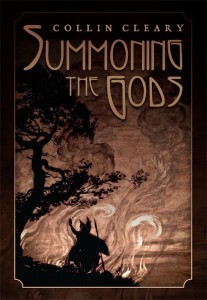
You can buy Collin Cleary’s Summoning the Gods here.
Unsurprisingly, the early Christians looked upon these Roman rituals with disfavor. Though the populace continued to celebrate Lupercalia well after the official conversion of Rome, Christian officials disapproved of its pagan associations as well as the bloody sacrifices and sexual immorality it supposedly promoted. Though there is no certain evidence that it was instituted as a replacement for Lupercalia, the Christian feast of Candlemas has been celebrated around the same time since the fourth century and — like both the Roman and the Irish festivals — has purification and light as its themes.
Candlemas takes place on February 2, 40 days after Christmas, and is traditionally considered the end of Christmastide and the beginning of the austere Lenten season. This is reflected in a number of poems by English Cavalier poet Robert Herrick (1591-1674), one of which reads: “End now the white loaf and pie / And let all sports with Christmas die.” Another reflects the tradition of removing all Christmas greenery on Candlemas, along with the superstitious belief that hauntings and death would otherwise ensue:
Down with the rosemary, and so
Down with the bays and misletoe;
Down with the holly, ivy, all,
Wherewith ye dress’d the Christmas Hall:
That so the superstitious find
No one least branch there left behind:
For look, how many leaves there be
Neglected, there (maids, trust to me)
So many goblins you shall see.
Another carol, composed by a Franciscan friar in the fifteenth century and titled “I Am Christmas,” speaks of the departure of the season of mirth as Lent approaches:
Here have I dwelled with more or lass
From Hallowtide till Candelmas,
And now must I from you hens pass;
Now have good day.
I take my leve of king and knight,
And erl, baron, and lady bright;
To wilderness I must me dight;
Now have good day!
And at the good lord of this hall
I take my leve, and of gestes all;
Me think I here Lent doth call;
Now have good day! . . .
What is the meaning of Candlemas, why does it take place 40 days after Christmas, and why is it considered the last feast of the Christmas cycle? It commemorates, for one, the “Purification of the Blessed Virgin Mary,” which is its more common appellation today. Under Mosaic law, childbirth rendered a woman ritually unclean; every woman who gave birth to a son had to wait 40 days before entering the temple and then offer two turtles or pigeons as a sacrifice. One may justly why ask the Holy Virgin, who was free of original sin and therefore had no need for purification, would submit to such a ritual. The most common reasons offered is that she willingly subjected herself to the law in order to provide mankind with an example of humility and remove any cause for rebuke. Another intriguing possibility is that — just as Christ underwent a seemingly unnecessary baptism — Mary submitted to this purification in order to unite herself with sinners. Neither she nor her son required purification; rather, they came to purify mankind, to deliver us from perverse self-will, corruption, and death, restoring our nature to what it was meant to be. This theme of purification and renewal links Candlemas to the Roman Lupercalia, as well as Imbolc and St. Brigid’s Day.
An additional explanation has to do with another event celebrated on this day: the Presentation of the Lord in the Temple. At the same time she underwent her purification rite, the Holy Virgin also — in keeping with the traditions of the Hebrews — presented her son to the Lord as an offering. But while for most mothers this was a purely ceremonial act, for Mary it had a deeper meaning. It meant that she willingly offered her son as a sacrifice for the good of man. In doing so, she brought the light of Christ into the world at great personal cost. Indeed, Candlemas marks the first presentation of Jesus to mankind, the long-awaited savior and liberator foretold by so many peoples — the Hebrew Messiah, the Hindu Kalki, the Buddhist Maitreya, the Zoroastrian Saoshyant, and the Golden Age emperor prophesied by the Cumaean Sibyl in Virgil’s Fourth Eclogue.
There was in the temple an aged man named Simeon, promised by God that he would not die until he beheld the savior. It was this Simeon who prophesied that Christ came not simply as a military leader for the Jewish people, but for the liberation of all mankind. To quote, in full, the passage from the Gospel of Luke (2:25-35):
At that time there was a man in Jerusalem named Simeon. He was righteous and devout and was eagerly waiting for the Messiah to come and rescue Israel. The Holy Spirit was upon him and had revealed to him that he would not die until he had seen the Lord’s Messiah. That day the Spirit led him to the Temple. So when Mary and Joseph came to present the baby Jesus to the Lord as the law required, Simeon was there. He took the child in his arms and praised God, saying,
“Sovereign Lord, now let your servant die in peace, as you have promised.
I have seen your salvation, which you have prepared for all people.
He is a light to reveal God to the nations, and he is the glory of your people Israel!”
Jesus’ parents were amazed at what was being said about him. Then Simeon blessed them, and he said to Mary, the baby’s mother, “This child is destined to cause many in Israel to fall, and many others to rise. He has been sent as a sign from God, but many will oppose him. As a result, the deepest thoughts of many hearts will be revealed. And a sword will pierce your very soul.”
This description of Christ as a “light to reveal God to the nations,” in keeping with other descriptions of him as the “light of the world” (John 8:12), is the reason for this feast’s association with candles and fire; hence its name. Since ancient times priests have blessed the candles on this day to be used in church for the year ahead, and parishioners would bring their own candles to be blessed. In addition to serving as a reminder of the lights of Christmas, these candles symbolize Christ’s liberation of mankind from darkness of ignorance and evil, from the snares of the Enemy, and of our own weakness in order to restore the Golden Age in our soul. Candles, fire, and light all link this festival to that of St. Brigid, as well as Lupercalia and Februa.
Celebrating Candlemas
Candlemas is rarely observed nowadays except by neopagans and Catholics of the old school. However, in olden times this day was celebrated, like the other major holidays of the liturgical calendar and agricultural cycle (such as Christmas, Easter, Whitsunday, St. John’s Eve, Michaelmas, and All Hallow’s) with great pomp and feasting. For those who wish to revive some of the traditions and rituals of old in your own households — Christian or otherwise — I offer the following suggestions.
- Fire and candlelight. Fire plays an important role in all of these early February observances — in the candles blessed on Candlemas to honor the “light of the world;” in the candles lit during Februa to ward off evil; and in the bonfires set in honor of Brigid, goddess and saint of the hearth. All of this relates to the fact that this festival marks the beginning of springtime, when the seeds beneath the ground and the fires of the Sun are beginning to renew the Earth. Thus, this holiday was customarily observed by lighting all the candles in the house (and, for old school Catholics, taking them to church to be blessed), lighting a roaring fire in the hearth or outdoors, and burning the remains of the Yule log.
- Purification. In all of the holidays discussed, February is regarded as a time of purification, when the dead accretions of winter are cleared away. Clean the house, clear the yard, put away the Christmas decorations. Rededicate yourself to purity in your own life (especially beneficial after the indulgences of Christmastime).
- Feasting. Candlemas provides an opportunity for a final grand feast to mark the end of the Christmas season. There are a number of foods traditionally associated with Candlemas and Imbolc. The most widely known are crepes and pancakes, whose round shape and golden color are reminiscent of the Sun and symbolize the return of spring after the darkness of winter. Dairy products and lamb also play an important role, in keeping with Imbolc’s ancient significance as the beginning of the lambing season; it is appropriate to eat butter, sheep’s milk cheese, and lamb or mutton on this day. Another traditional Imbolc food is bannock or Bonnach Bride, an unleavened oatcake left out on the eve of Imbolc to gain Brigid’s blessings of fertility and good health. And no traditional holiday is complete without ample wine and ale.
- Celebrate the coming spring. All of these festivals celebrate, in one way or another, the return of spring. Take a walk in the forests and fields and look for the first signs of spring’s return. Even if the landscape is still covered in snow, walk outside to appreciate its beauty before the warm weather returns. In certain climates, it is a good time to begin planting the garden, inside or out. Make a handmade St. Brigid’s Cross to honor the saint and symbolize the wheel of the Sun in the sky. There is also a long tradition of weather forecasting on this day — indeed, if most contemporary Americans attribute any significance to February 2, it is because it is Groundhog Day. As is well known, if the groundhog emerges from his burrow and sees his shadow, there will be six more weeks of winter. This is related to the much older tradition that clear weather on Candlemas presaged a longer winter (the Sun casting a shadow to frighten the groundhog). The tradition was brought to America by the Pennsylvania Dutch, based on an older German tradition involving a badger. If so inclined, you could attend one of these events near you (or watch the excellent film of the same name).
Purity & Transcendence
Finally, brethren, whatsoever things are true, whatsoever things are honest, whatsoever things are just, whatsoever things are pure, whatsoever things are lovely, whatsoever things are of good report; if there be any virtue, and if there be any praise, think on these things. (Philippians 4:8)
In conclusion, I offer some thoughts on the ideal of purity.

You can buy Julius Evola’s East & West here.
Nothing appears further from this ideal than the decadence of the contemporary world. “Decadence” — a word often employed but rarely defined — is the process and condition of decay, on both an individual and social level. Decadence in the individual is the extent to which he has fallen from his true divine nature: It covers all manner of traditionally objectionable behaviors and characteristics, including addiction, lustfulness, sloth, weakness, indiscipline, and cowardice. Socially and politically, decadence is the extent to which society has fallen from its transcendent orientation and come under the sway of the lower functions, oriented chiefly towards material gain, physical pleasure, and license. Needless to say, life in the anarchistic, atheistic, and materialistic modern era is characterized by decadence.
The aim of the above-mentioned festivals, in their purificatory aspects, is to clear away decay and to realign man and society with the natural and divine order: in other words, to restore a state of purity. Purity, in this sense, is a condition of simplicity and wholeness. It is man’s natural state of undivided consciousness, before his fall from Eden or the Golden Age into self-will and sin. The innocence of the child is perhaps the closest to this primordial purity, and indeed the highest state of being most of us can aspire to, a time when we are most trusting, full of wonder, and nearest to our divine nature. Likewise, animals and the natural world are whole and undivided, pure emanations of the divine Idea without the self-will and corruption that afflicts mankind. Such purity may also be attainable by certain superior human types — the saints, arhats, Übermenschen, and holy fools.
Alas, from the primordial innocence of the child most all men descend into vice, cynicism, and pragmatic accommodation to the bleak reality. Since childhood innocence cannot be maintained into adulthood, those who sense their fallenness from the divine must strive to recover that purity, insofar as they are able. Transcendence of the human condition seems the only logical alternative. And what is transcendence? It signifies the overcoming of the merely human through knowledge of and union with the divine. It is an attempt to regain the primordial state of mankind, the aim of every traditional religious doctrine. Whether as an ascetic priest, a knight, or a craftsman, one could strive for transcendence through self-purification and dedication to one’s duty. This is achieved through spiritual ascesis and mastery of the baser instincts; it is also recovered by means of rituals of purification, such as those that take place during these early February festivals. Every holiday, in fact, if observed in the proper spirit, can realign us with our primordial nature and give us strength.
The societies in which these purificatory festivals developed were, at least in principle, dedicated to such a vision of human excellence. They were monarchical or aristocratic societies, in which — again, in principle — the rational, spiritual, and noble was meant to rule over the material and the base. Such a society is properly concerned with order and justice, and its aim is to elevate the human spirit and guide humankind into alignment with the laws of nature and of God.
Needless to say, we do not live in such a society. While in some ways more insidious than any fictional dystopia, however, our contemporary reign of simulacra and artifice does have one silver lining: It is to a certain extent voluntary. “Corruption never has been compulsory,” as Robinson Jeffers once wrote; and if one is willing to put up with a degree of discomfort and social opprobrium it is possible to extricate oneself mentally and spiritually, and in many ways physically, from the corruptions of the present.
There are many ways to do undertake this process of purification, and I will only offer one suggestion here from personal experience. When I consider how I first began my ascent from the cave, I attribute it to a number of factors: the place and era of my upbringing, various books I read, sojourns in old Europe, youthful existential crises. The most important factor, however, has been my experience of wild nature. My solitary travels in the mountains and forests, listening to the water trickling in a stream, watching the wind blow across the prairie, hearing the wolves howl at twilight — all of these experiences taught me that there is a force in this world that transcends human consciousness and our ephemeral concerns. There is a natural law that demands our reverence. Wilderness, in short, taught me the reality of the spirit, a fact that is easy to forget in our lives of artifice and ease. This is one reason why the wilderness prophets of the nineteenth century, Thoreau and Emerson and Muir, sought to preserve it against the onslaught of industrial civilization.
Festivals celebrating the return of light in the darkness of winter were so pervasive throughout the pre-modern world not simply because they marked the longer days or the beginning of the planting season. On a deeper level, these festivals were born of a primal experience of darkness and deep cold that few of us can fully understand. In our age of electric lighting and central heat, we can scarcely imagine what a blessing the return of longer days and warmer weather must have seemed to our ancestors. I suggest that one way to observe these purificatory festivals, and in the process reconnect with our forebears and purge ourselves of some contemporary softness, is to willingly expose ourselves to such cold. Plunge into frigid water, trek across a frozen landscape, spend time in the cold darkness with nothing but the stars to light your way. You may appreciate the returning sunlight, the roaring fire, and even the candlelight in your home a little more.
Perhaps in this age of mass entertainment, incessant distraction, rootless cosmopolitanism, and widespread degeneracy, a time when God has been forgotten or transformed into a humanitarian imperative and every feature of the traditional social order has fallen into disrepute, such experiences can help us to reawaken one quality in which the modern world is most glaringly deficient: the sense of reverence. Once we have allowed this sense to awaken and suffuse our being, the reverential impulse can be carried forward into a defense and embrace of all that is good, all that is holy, and all that is pure on Earth and in Heaven.
* * *
Counter-Currents has extended special privileges to those who donate $120 or more per year.
- First, donor comments will appear immediately instead of waiting in a moderation queue. (People who abuse this privilege will lose it.)
- Second, donors will have immediate access to all Counter-Currents posts. Non-donors will find that one post a day, five posts a week will be behind a “paywall” and will be available to the general public after 30 days.
To get full access to all content behind the paywall, sign up here:
Paywall Gift Subscriptions
 If you are already behind the paywall and want to share the benefits, Counter-Currents also offers paywall gift subscriptions. We need just five things from you:
If you are already behind the paywall and want to share the benefits, Counter-Currents also offers paywall gift subscriptions. We need just five things from you:
- your payment
- the recipient’s name
- the recipient’s email address
- your name
- your email address
To register, just fill out this form and we will walk you through the payment and registration process. There are a number of different payment options.
Note
[1] Lupercalia also possesses a clear fertility dimension, which nevertheless seems to have been secondary to its purificatory function. Some authors have claimed that random sexual coupling was also common during this celebration, in addition to the nude carousing and feasting characteristic of fertility festivals. Indeed, due to their similar themes and placement on the calendar, some have drawn a connection to Valentine’s Day. While this is too complicated a subject to address at present, it is true that in addition to their common date, Valentine’s Day also shares (intentionally or not) certain symbols with Lupercalia: the color red of blood sacrifice and the color white of the milk used to wipe the blood clean, representing new life and procreation.
Candlemas%3A%20Festival%20of%20Fire%20and%23038%3B%20Purification
Enjoyed this article?
Be the first to leave a tip in the jar!
Related
-
Remembering Flannery O’Connor (March 25, 1925–August 4, 1964)
-
Lent Observations
-
Ayn Rand and the Conquest of Space
-
All He Wanted for Christmas Was White Genocide
-
Counter-Currents Radio Podcast No. 564: The Counter-Currents Christmas Special
-
A Christmas Curry, Part 2
-
The Worst Week Yet: December 17-23, 2023
-
A Christmas Curry, Part 1
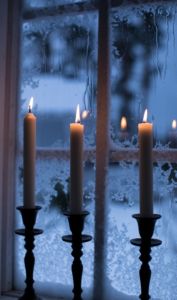

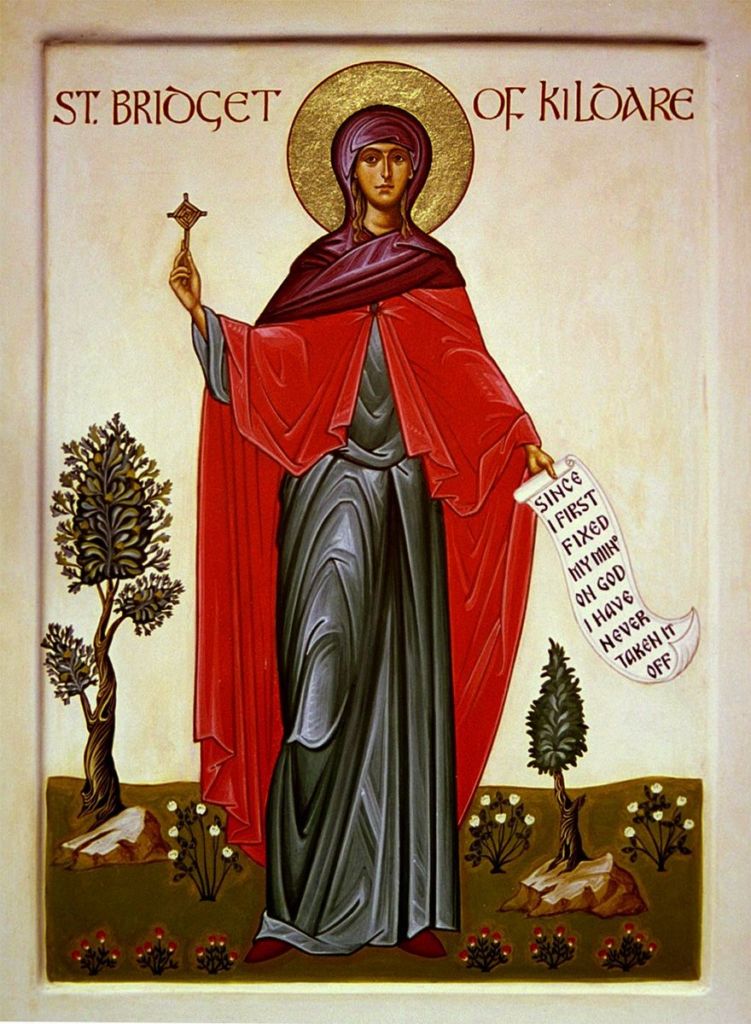

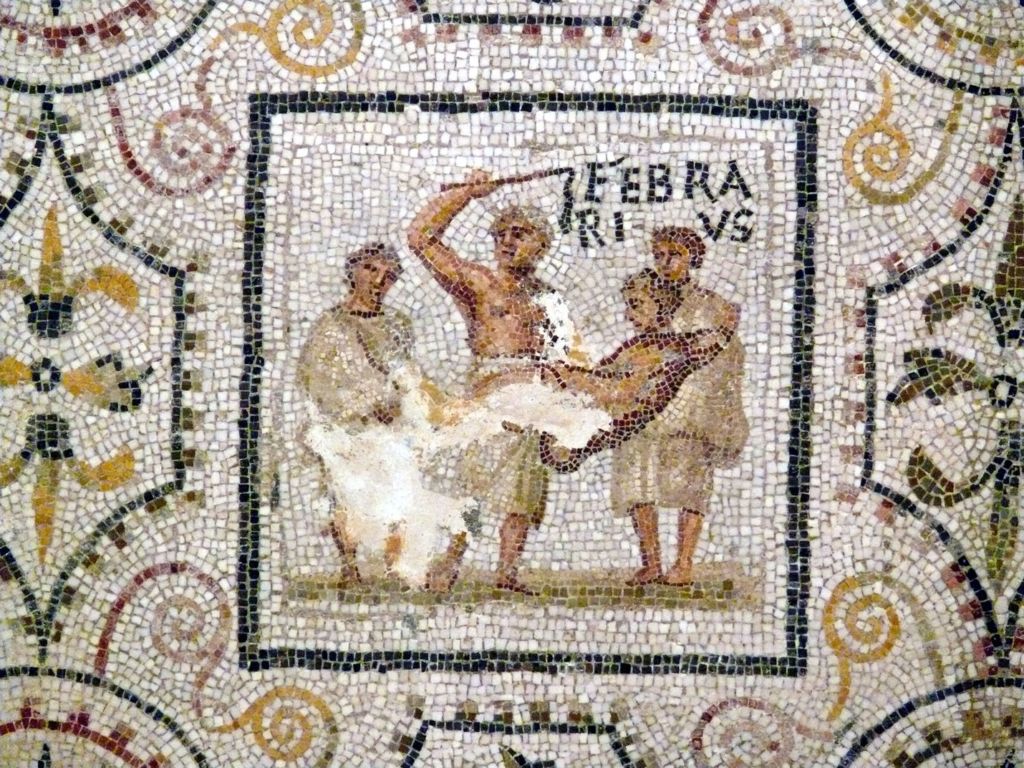
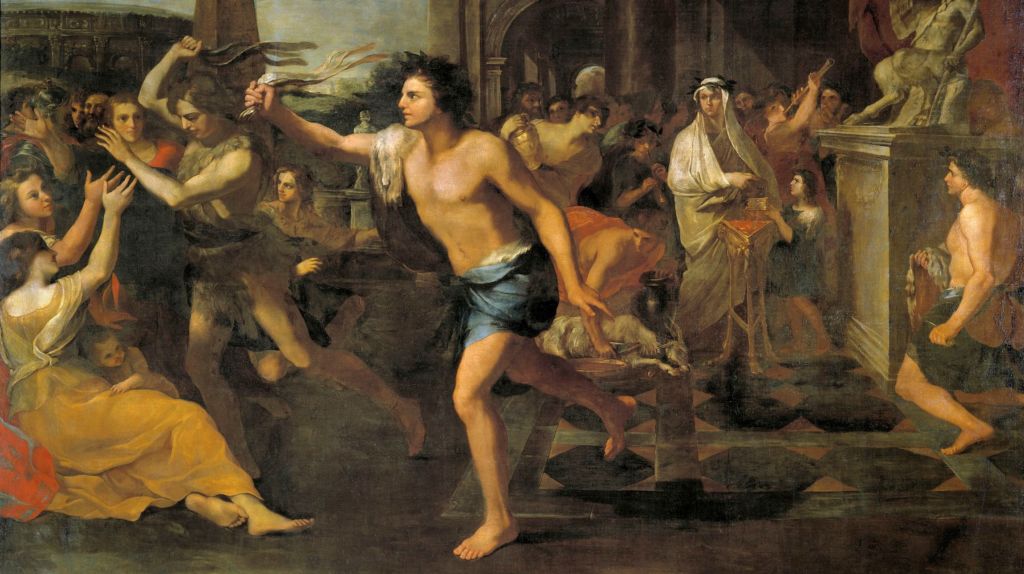
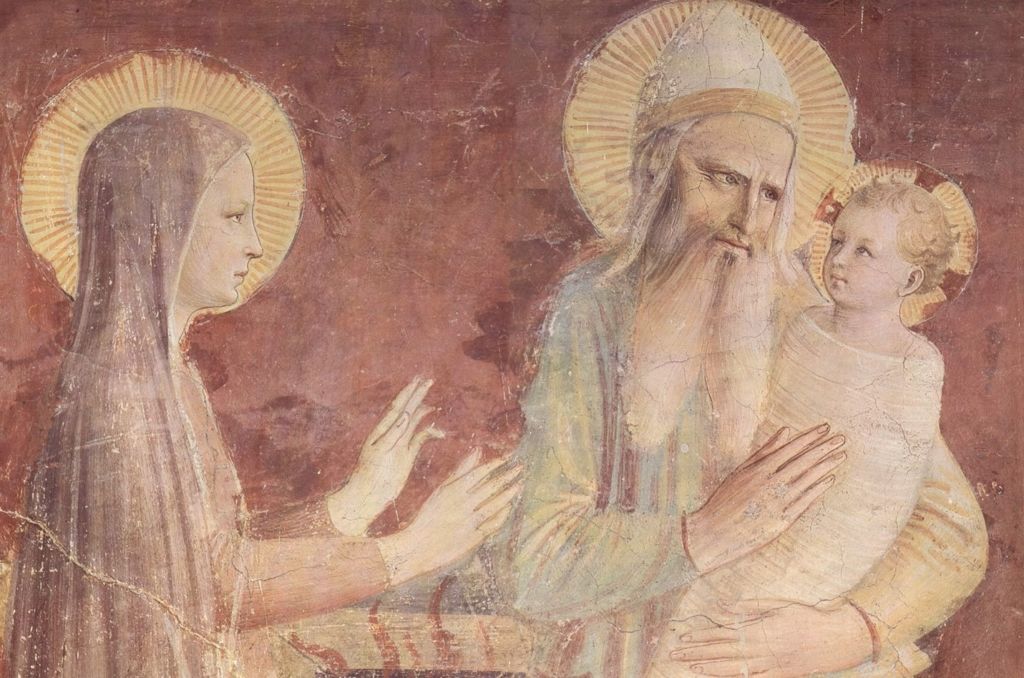
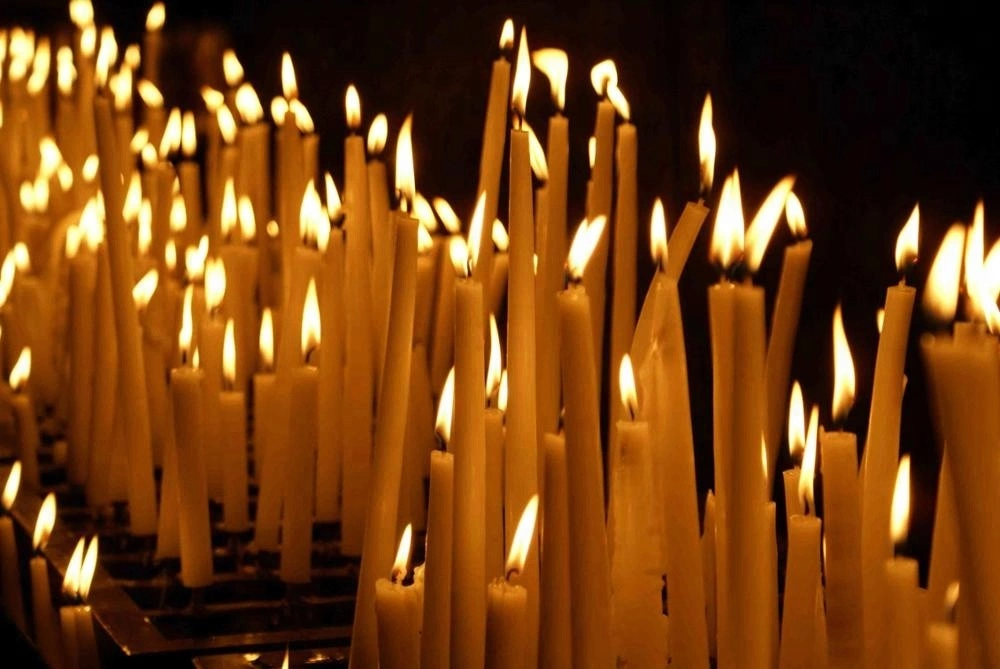
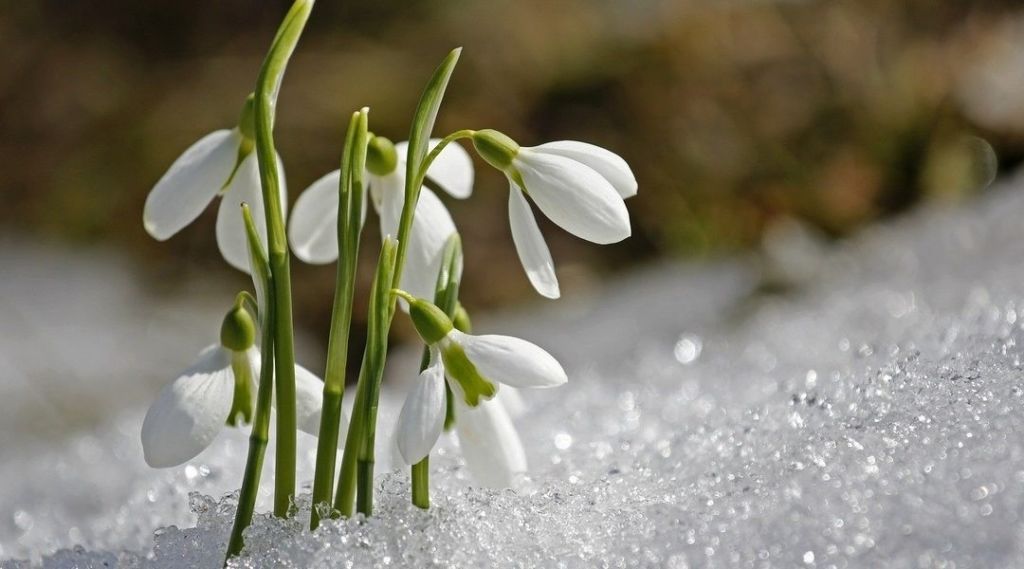

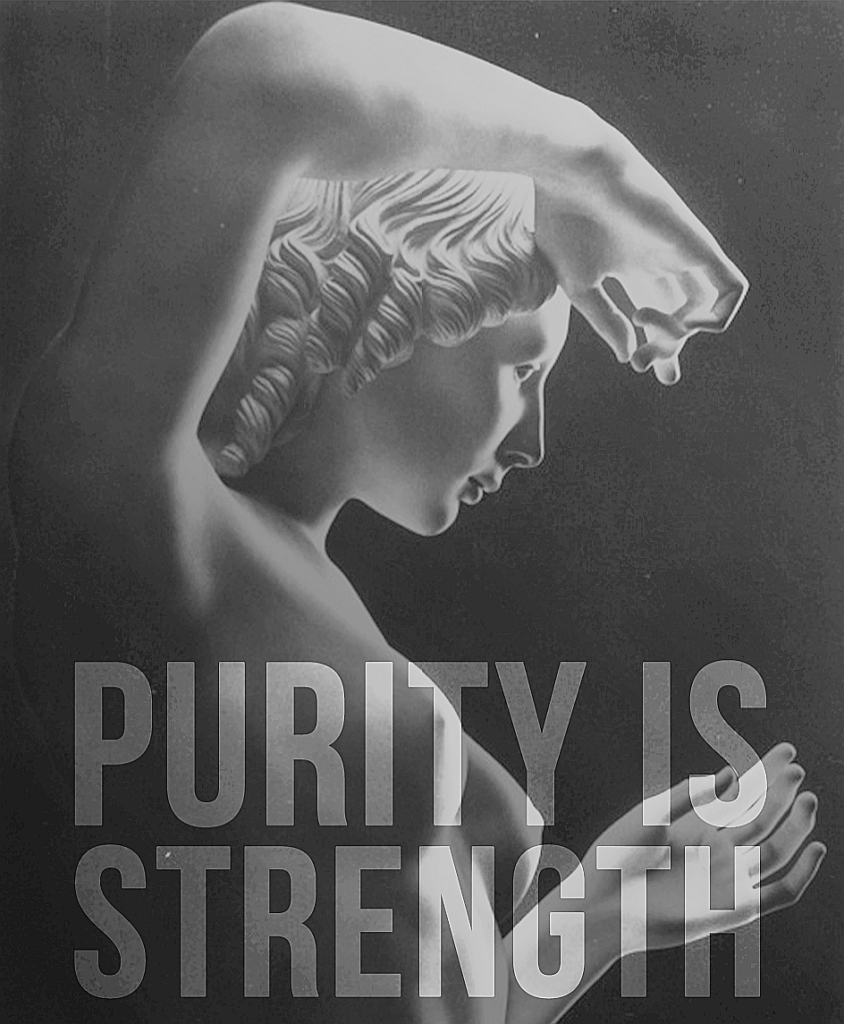

5 comments
Absolutely wonderful and inspiring article! The life force energy of our ancestors is still with us – thank you for reminding us. It is just this awareness that will show us the way forward into an uncertain and troubling future. The unique beauty of the Northern Spirit will never die.
Yes, and the Groundhog Day on the 2nd of February, has a long European tradition too. For ancient Romans it was a Hedgehog Day, and for German tribes the day of a badger or of a bear. For Russians there is Maslenitsa in February, the carnival week before Lent, when the Russians bake and eat pancake (and the Poles and Ukrainians eat pierogi or vareniki, Slavonic dumplings with sweat farmer cheese).
And we, Türkic peoples, have to wait till 21st of March, the traditional Persian/Iranoaryan/Türkic holiday Nowruz Bayrami, when the Spring and the (pre-Islamic) New Year begin.
(The word year or German Jahr both stem from Slavic jar which means Spring, because the new year always traditionally has began in the spring. And the Slavonic word jar (yar) comes from the Turkic word yer or jer, which means earth or land. Because in spring the earth becomes visible when the snow melts. And thus the new year begins.)
Romulus and Remus, were traditionally believed to have been suckled by the she-wolf after their abandonment.
This story is very similar to the Türkic story of the she-wolf Asena. The legend of Asena tells of a young boy who survived a battle; a female wolf finds the injured child and nurses him back to health. The she-wolf, impregnated by the boy, escapes her enemies by crossing the Western Sea to a cave near the Qocho mountains and a city of the Tocharians, giving birth to ten half-wolf, half-human boys. Of these, Yizhi Nishidu becomes their leader and establishes the Ashina/Aşina clan, which ruled over the Göktürk (Köktürkler) and other Türkic nomadic empires (Eliler).
Thank you for honoring all our ancestors, Pagan and Christian.
Always enjoy your submissions William thank you
Comments are closed.
If you have Paywall access,
simply login first to see your comment auto-approved.
Note on comments privacy & moderation
Your email is never published nor shared.
Comments are moderated. If you don't see your comment, please be patient. If approved, it will appear here soon. Do not post your comment a second time.